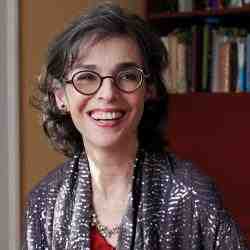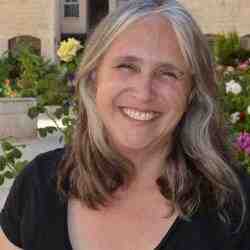Introduction
By opening up venues and spaces where children can directly participate and be active agents in decision-making processes at their schools, neighborhoods, cities or parliament, Emrah Kırımsoy’s Agenda Children seeks to do exactly what the name entails: to put children’s will and issues on Turkey’s busy agenda. In addition to empowering children for changemaking, Emrah seeks to change the public misconception that children are or should be passive beings when it comes to societal issues. To this end, she builds alliances between children’s NGOs, media and human rights experts to amplify children’s voices in strategically important areas.
The New Idea
Emrah Kırımsoy believes that if given the opportunity and right space, every child is able to create positive social change on every issue concerning their communities and society, from the new park in their neighborhood to the country’s new constitution. She also believes such experiences are necessary to empower children to be active, creative and critical individuals, both today and tomorrow. Based on this firm belief, Emrah and Agenda Children develop innovative processes and workshops that use informal education methods (such as games, simulations and puzzles) and enable children to form and verbalize their opinions, while also making them realize that they are individuals with rights in every area of life. Agenda Children runs children’s rights workshops and media workshops all year around in their offices in Ankara and Van, as well as more than ten cities across Turkey, in partnership with other children’s NGOs.
The Problem
Children make up close to one third of Turkey’s population, yet have very little opportunity to influence decisions affecting their present and future lives. Children also face widespread violations of their human rights. One in every three children lives in poverty and/or is a child worker; one in every six girls is a child bride, and many children live deprived of their rights to adequate education and health services. Despite widespread violence and abuse, children’s issues only make it to the public agenda when there is a crisis or scandal concerned. Handling children’s problems at the symptom level is also common among the government and civil society interventions, which remain charity oriented, reactive and blind to children’s real life experiences. Existing mechanisms to encourage children’s participation in decision-making processes (such as children’s councils at municipalities or children’s associations) have become empty shells. Institutions see them as a mere ticking the box exercise, while children find them unsuitable, forcing them to imitate grownups in their thinking and behavior.
The Strategy
The children’s rights workshops involve games and activities designed by Agenda Children, such as “Children’s Turn”, which is a board game similar to Monopoly, aiming to increase awareness and capacity of children about their human rights through play and peer learning. Since its completion in 2010, it has become a tool used by the country’s major children NGOs and reached over 15.000 children. The media workshops are based in Ankara and Van, where over 500 children participate in “I have a message” media workshops and became local reporters. The children in Van also reported over the internet in the aftermath of the devastating Van earthquake in 2011, focusing on life in the tent cities.
Agenda Children also designs special processes for children to participate in hot topics such as local elections or drafting Turkey’s new constitution. One such example was their “My Constitution” project, which involved 150 children across Turkey in workshops and games where they discussed the notion of making rules/laws, what a constitution is, what issues it should cover and such. The results were gathered and presented in the Parliament commission responsible for drafting the new constitution by the children themselves. Although still being drafted, the commission members were highly impressed and promised to include children’s demands in the constitution, which were previously not on their agenda at all.
In addition to the efforts to empower children directly, Emrah and Agenda Children also form nationwide alliances, networks and campaigns to amplify children’s voices. They have been initiators and drivers of several such initiatives on critical issues such as child brides and children in the penal system and prisons. By combining sound research, effective advocacy and entrepreneurial campaigning, they were able to make significant reforms in national policies concerning school and workplace safety, as well as children’s rehabilitation during and after prison.
Through the efforts of Emrah, Agenda Children and their partners, thousands of children in Turkey had opportunities for developing their creativity, empathy and teamwork skills, while children’s issues which were often third or fourth priority started to make their way in the government’s and media’s agenda. In the future, Agenda Children plans to expand the reach their projects, especially those concerning children reporters and human rights awareness games, by carrying them to the internet, using Turkey’s high internet penetration rates to their advantage.
The Person
Always high in her awareness and mobilization skills, Emrah established her first civil initiative at the age of 12, when she mobilized a group of friends in her neighborhood to clean their streets and find street animals suitable homes. The organization was a huge success and great experience, which she believes is the source of her belief and dedication that children can and should be involved in solutions to societal problems. She went on to study social services which had a significant impact on where she is now. However, she always felt that something was missing (and continues to do so as she is working towards a doctorate degree in the same field). Not satisfied with the lack of field experience and direct contact with children, she started to create her own work with field applications as a student, managing to enter over 30 juvenile prisons in Turkey’s rather closed penal system. Driven by the same motive, she established Agenda Children with a group of friends and colleagues in 2005, which has now become a leading children’s NGO with an emphasis on children’s direct participation.




